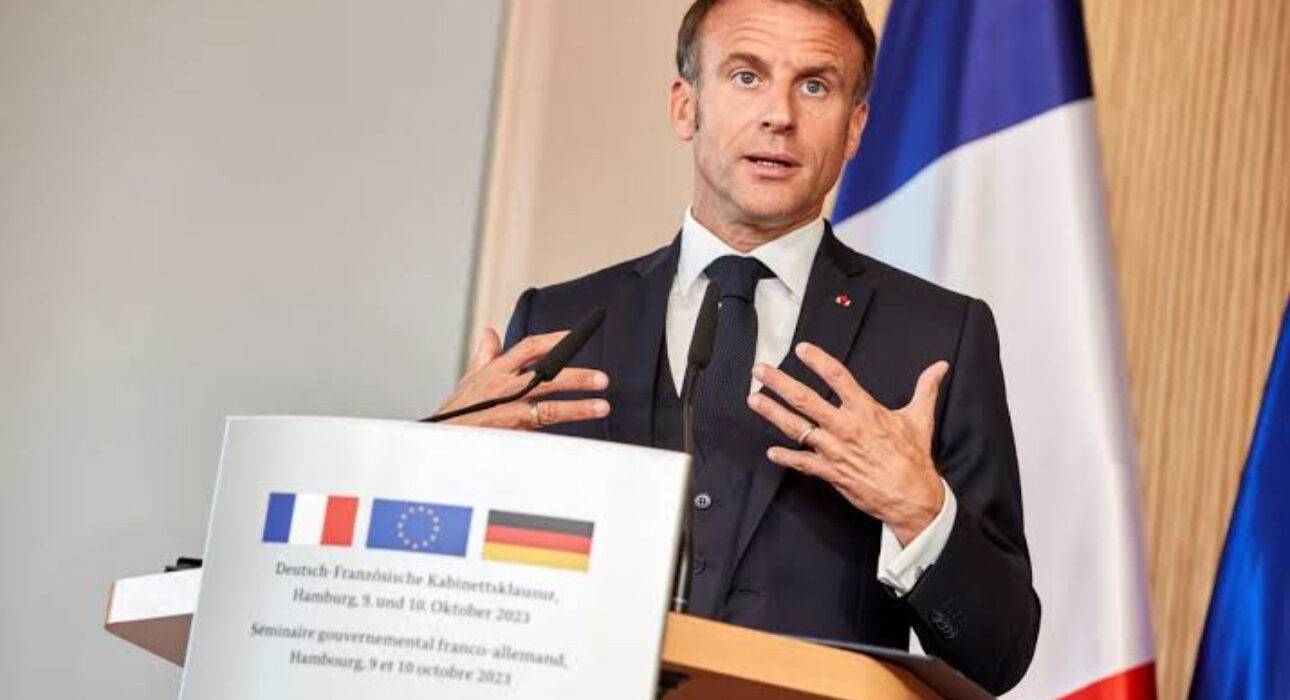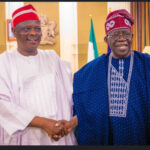Macron Slams Trade Tariffs by Global Powers as Economic ‘Blackmail’

President Emmanuel Macron of France has issued a sharp rebuke of protectionist trade policies imposed by dominant global powers, describing such tariffs as a form of “economic blackmail” that undermines fair trade and threatens the stability of developing economies.
Speaking on Sunday, June 30, during the International Conference on Financing for Development held in Seville, Spain, Macron expressed frustration with the way powerful nations use trade tariffs as coercive tools rather than mechanisms for equitable economic adjustment. He warned that these tactics, often masked as national economic defense, were increasingly turning global trade into a battlefield of political and economic pressure.
“These tariffs are not fair trade tools; they are blackmail,” Macron said. “They are being used by the powerful to impose their will on weaker nations, with little regard for the global consequences.”
Macron’s remarks come at a time of heightened tension in global trade relations, particularly as the European Union and the United States edge closer to a July 9 deadline for settling a tariff dispute that could reshape transatlantic economic ties.
The French leader cautioned against plunging the world into a fresh trade war at a time when global challenges such as climate change, inequality, and economic instability demand urgent, cooperative solutions.
Highlighting the plight of small and vulnerable economies, Macron criticized punitive tariffs ranging from 10% to 50% that have been levied on countries such as Lesotho, Cambodia, Laos, Madagascar, and Myanmar.
He argued that such measures could devastate the fragile economies of these nations and hinder their development efforts.
“This is not just an issue of Europe versus America,” Macron added. “This is about the kind of global economy we want to build. Do we want it to be governed by rules, justice, and mutual respect—or by force?”
Macron also drew attention to what he described as the absurdity of expecting European nations to ramp up defense spending while being targeted by tariffs from the same allies. He called such a policy contradiction “an aberration.”
In response to the ongoing tensions, Macron reiterated his support for comprehensive reforms to the World Trade Organization (WTO), advocating for changes that would prioritize fairness, sustainability, and accountability in international commerce.
As the EU continues to deliberate its position in upcoming trade negotiations with the U.S., Macron’s forceful comments underscore the deepening unease within Europe about rising economic nationalism and the erosion of multilateral trade frameworks.
With the July deadline fast approaching, Macron’s warning serves as a stark reminder that the path forward in global trade may define not only economic relations, but also the geopolitical balance of power for years to come.








